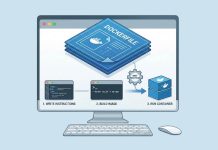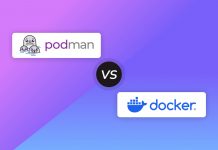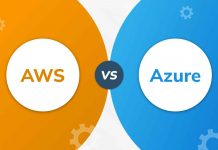
Today, automation has become a pivotal DevSecOps quality across companies. Hence, it is vital to adopt the right DevSecOps tools for automation, as it is a great way to streamline an organization’s IT operations.
When it comes to choosing a tool, you take a look at your organization’s processes, the networks you use, and team capabilities. Analyzing will always help you decide on the right tools. To make this process even simpler for you, we have made a list of efficient DevSecOps that can be integrated into the DevOps pipeline.
1. Codacy
Coday offers construction teams quality automation and uniformity solutions so that they can move as far as possible, recognizing new problems early in the development process. Their static code report tool assists developers to automatically recognize and address security issues, duplication, complexity, style infractions, and drops in coverage with each commit and pull application, directly from their Git workflow.
Codacy comprises 20 programming languages and integrates smoothly into developers’ workflow, giving them clarity over their code features so that they can pursue their projects’ quality over the present to quickly address any technical claim they might have.
The Codacy team presented its mission to support software development teams by making significant engineering judgments and design productivity in quality. This tool helps ensure developers can save a considerable amount of their time in code review and code quality monitoring so that they can concentrate on development while Codacy performs the method of producing high-quality software comfortably.
2. SonarQube
This open-source scheme produced by SonarSource also concentrates on promoting developers by automation. SonarQube is an automated code analysis tool to identify flaws, vulnerabilities and code detection in your code. It combines with development teams’ essential workflows to give them continuous code inspection beyond all of their design branches and pull applications.
SonarQube helps approximately 30 programming languages and allows continuous code review so that small development teams and enterprises can spot flaws and fix vulnerabilities that compromise their apps, to have irregular behavior from affecting end-users.
3. Acunetix
Acunetix allows an All-in-One website security scanner to support developers to detect problems at the most advanced stage.
Acunetix places out to support businesses with a significant web appearance that have to defend their web assets that are at high hazard from hackers, by giving specific technologies that help developers to identify more problems and fix them as soon as possible. The solution is simple to use and allows an organization, automation, and integration.
Acunetix is a secure solution, and one of the best-established resolutions in the business because it concentrates on web security, and claims high-speed scanning, minimum false positives, ease of application, different technologies, and SDLC integration.
4. Logz.io
Logz.io is a different business solution developed by engineers for engineers, that allows cloud observability by ELK & Grafana so that developers can quickly control, troubleshoot, and secure the product.
Amongst the various useful features that this log administration and log review solution gives, the security analytics helps businesses of any size to address. Logz.io’s security reports allow developers to combine security into their DevOps pipelines including the tools and data used for operations, so that people can know more, without reducing speed or agility with excellent threat detection and relationships. Also, it gives built-in reports, rules, and integrations to support organizations stay compliant.
5. GitLab
GitLab is a web-based DevOps program that gives a full CI/CD toolchain out-of-the-box in one particular application. It encourages collaboration among Development, Security, and Ops teams and helps them hurry up delivery, and discuss security vulnerabilities without reducing down the CI/CD pipeline, by analyzing toolchain complexity.
Besides being labeled a CI leader, GitLab offers the full set to help organizations reduce their DevOps cycle time by connecting pits and platforms, and maintaining a centralized workflow that overcomes streamline activities that utilize to be separate, like application security, and CI/CD.
6. Aqua Security
Aqua security benefits protect the day by giving container security during the DevSecOps pipeline. Aqua’s cloud-native security platform offers users full authority over containerized conditions, with short runtime security limitations and interference blocking skills, at scale.
The platform provides users with an API for smooth integration and automation. The Aqua Container Security Platform gives full SDLC directions for obtaining containerized applications that work on-premises or in the film, also on Windows or Linux.
7. XebiaLabs
XebiaLabs has remained constant throughout the early days of DevOps. It has helped businesses speed up their statements and help large companies typically simplify complex processes.
The XebiaLabs DevOps Platform allows a full Application Release Orchestration (ARO) solution that includes everything from propaganda orchestration, to deployment automation and DevOps knowledge. Teams can practice it in nearly any environment, including containers, the cloud, middleware, and mainframes.
The platform blends seamlessly toward the DevOps pipeline. It consolidates all of an organization’s DevOps tools into a particular interface so that people can orchestrate and automate the complete software delivery and deployment method, including CI, security, database, analytics, environment provisioning, and delivery tracking, and inscribing.
Which DevSecOps Tools are Best for You?
Choosing the DevSecOps strategy during an organization is no easy task. Picking the best automated DevSecOps media is a great way to begin. As suggested earlier, it is best to think about your organization’s operations and systems, methods, and teams, and start with the tools that will benefit you most and are a comfortable fit. To gain a proper understanding of DevSecOps tools, there should be a proper foundation of DevOps tools and how it is used in an enterprise to deliver software projects. Individuals and enterprise teams should get trained in industry-recognized DevOps courses to completely understand the dynamics of DevOps and DevSecOps in an organization.
Practicing the right automated mechanisms that serve to secure your products during the SDLC allows your development teams to power in to meet schedules with high-value deliverables.
Some of the popular DevOps Courses that professionals and enterprise teams can take up are:
- DevOps Professional Certification Course














